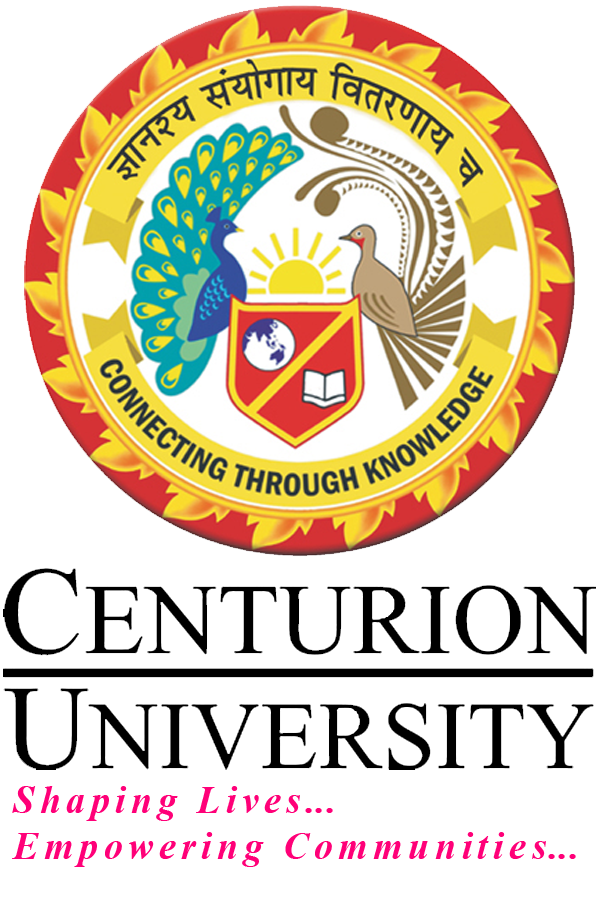Modern Pharmaceutical Analytical Techniques (CUTM2000)
Course Attendees
Still no participant
Course Reviews
Still no reviews
Scope
This subject deals with various advanced analytical instrumental techniques for
identification, characterization and quantification of drugs. Instruments dealt are
NMR, Mass spectrometer, IR, HPLC, GC etc.
Objective
After completion of course student is able to know,
Chemicals and Excipients
The analysis of various drugs in single and combination dosage forms
Theoretical and practical skills of the instruments
SYLLABUS [THEORY]
1. a. UV-Visible spectroscopy: Introduction, Theory, Laws,
Instrumentation associated with UV-Visible spectroscopy, Choice of solvents and solvent effect and Applications of UV-Visible
spectroscopy.
b. IR spectroscopy: Theory, Modes of Molecular vibrations,
Sample handling, Instrumentation of Dispersive and Fourier -Transform IR Spectrometer, Factors affecting vibrational frequencies and Applications of IR spectroscopy
c. Spectroflourimetry: Theory of Fluorescence, Factors
affecting fluorescence, Quenchers, Instrumentation and Applications of fluorescence spectrophotometer.
d. Flame emission spectroscopy and Atomic absorption
spectroscopy: Principle, Instrumentation, Interferences and
Applications.
2 NMR spectroscopy: Quantum numbers and their role in NMR,
Principle, Instrumentation, Solvent requirement in NMR, Relaxation process, NMR signals in various compounds,
Chemical shift, Factors influencing chemical shift, Spin-Spin
coupling, Coupling constant, Nuclear magnetic double resonance,
Brief outline of principles of FT-NMR and 13C NMR. Applications
of NMR spectroscopy.
4.Mass Spectroscopy: Principle, Theory, Instrumentation of Mass
Spectroscopy, Different types of ionization like electron impact, chemical, field, FAB and MALDI, APCI, ESI, APPI Analyzers of Quadrupole and Time of Flight, Mass fragmentation and its rules, Meta stable ions, Isotopic peaks and Applications of Mass spectroscopy
4. Chromatography: Principle, apparatus, instrumentation,
chromatographic parameters, factors affecting resolution and applications of the following:
a) Paper chromatography b) Thin Layer chromatography
c) Ion exchange chromatography d) Column chromatography
e) Gas chromatography f) High Performance Liquid
chromatography
g) Affinity chromatography
5. a. Electrophoresis: Principle, Instrumentation, Working
conditions, factors affecting separation and applications of the following:
a) Paper electrophoresis b) Gel electrophoresis c) Capillary electrophoresis d) Zone electrophoresis e) Moving boundary electrophoresis f) Iso-electric focusing
b. X ray Crystallography: Production of X rays, Different X ray diffraction methods, Bragg‘s law, Rotating crystal technique, X
ray powder technique, Types of crystals and applications of Xray diffraction.
6.Immunological assays: RIA (Radio immuno assay), ELISA, Bioluminescence assays.
REFERENCES:
1. Spectrometric Identification of Organic compounds - Robert M Silverstein,
Sixth edition, John Wiley & Sons, 2004.
2. Principles of Instrumental Analysis - Doglas A Skoog, F. James Holler,
Timothy A. Nieman, 5th edition, Eastern press, Bangalore, 1998.
3. Instrumental methods of analysis – Willards, 7th edition, CBS publishers.
4. Practical Pharmaceutical Chemistry – Beckett and Stenlake, Vol II, 4th
edition, CBS Publishers, New Delhi, 1997.
5. Organic Spectroscopy - William Kemp, 3rd edition, ELBS, 1991.
6. Quantitative Analysis of Drugs in Pharmaceutical formulation - P D Sethi, 3rd
Edition, CBS Publishers, New Delhi, 1997.
7. Pharmaceutical Analysis- Modern methods – Part B - J W Munson, Volume
11, Marcel Dekker Series
Session 1: Introduction to UV visibile spectroscoopy
Session 2: UV visibile spectroscoopy, instrumentation and Applications
Session 3: Theory, Modes of Molecular vibrations,
Sample handling,
Session 4: Instrumentation and Applications of IR spectroscopy
Infrared spectroscopy _ (Instrumentation, Different types of Sample handlings)
Session 5: Molecular vibrations and Applications of IR spectroscopy
IR spectroscopy (Multivariate Applications)
Session 6: Flame emission spectroscopy: Principle, Instrumentation, Interferences
Session 7: Spectroflourimetry: Theory of Fluorescence, Factors
affecting fluorescence, Quenchers,
Spectro-flourimetry (Principle, Theory, Instrumentations, Applications)
Session 8: Instrumentation, Interferences and
Applications.
Session 9:
NMR spectroscopy: Quantum numbers and their role in NMR,
Principle, Instrumentation, Solvent requirement in NMR,
Relaxation process.
Session 10:
NMR spectroscopy: Nuclear magnetic double resonance,
Brief outline of principles of FT-NMR and 13C NMR. Applications
of NMR spectroscopy.

